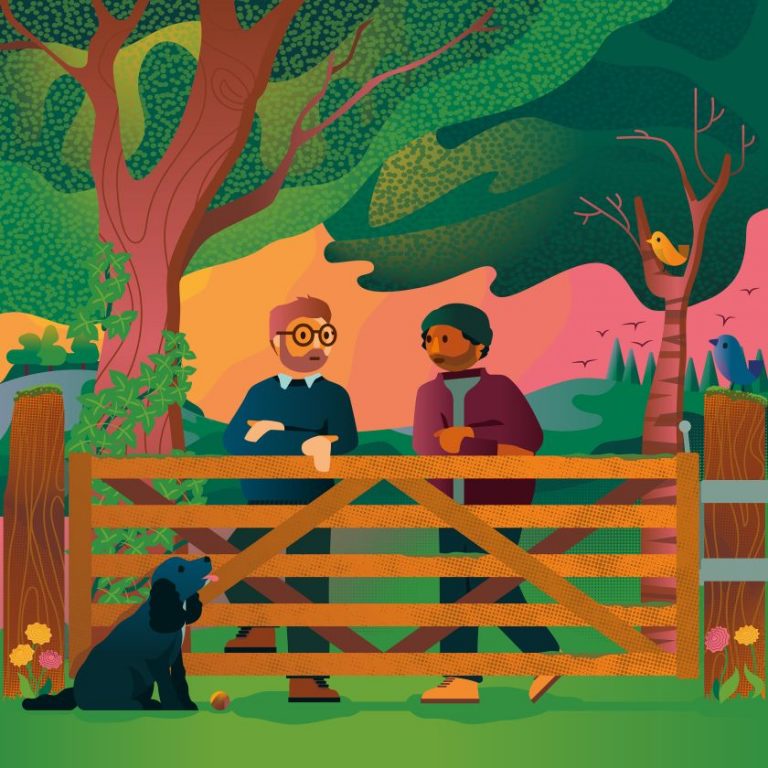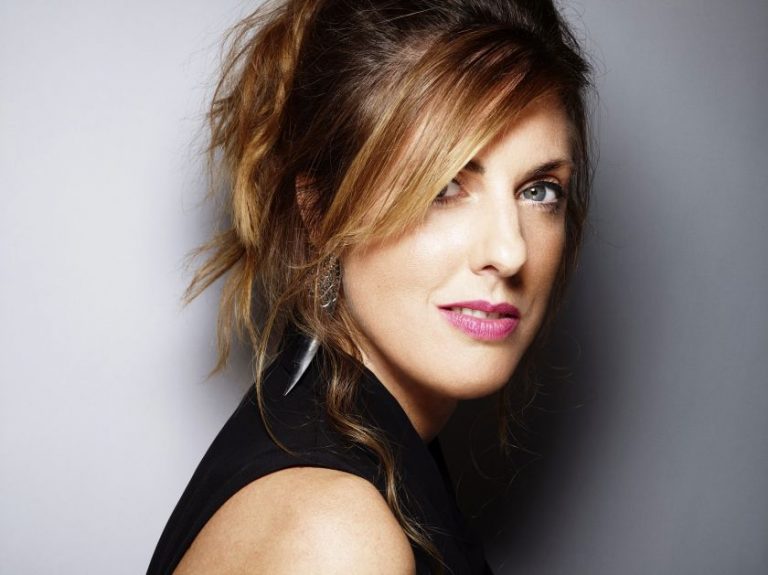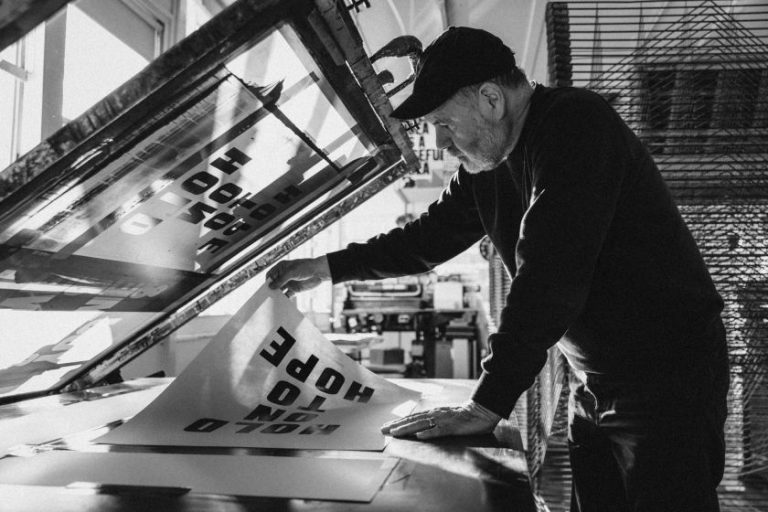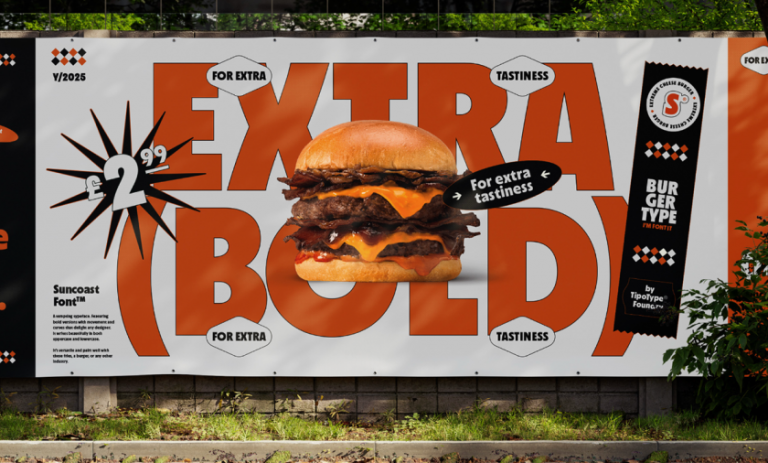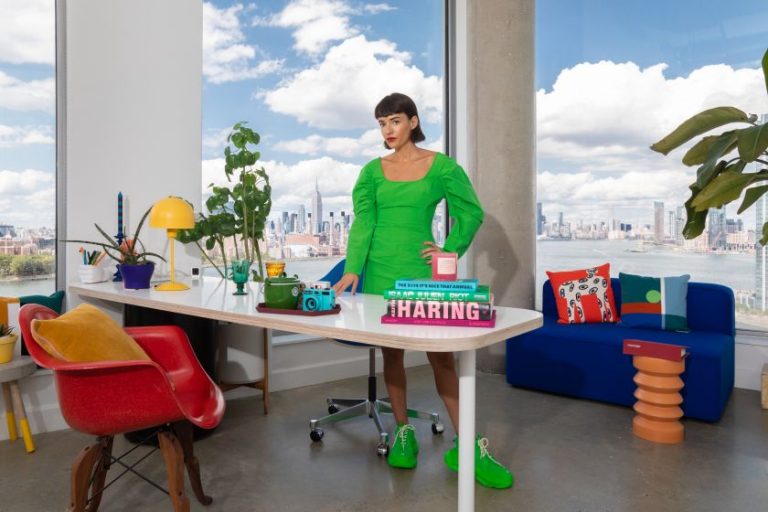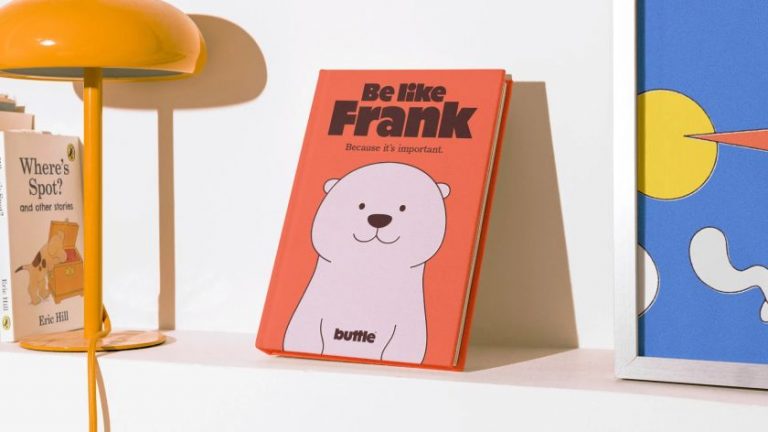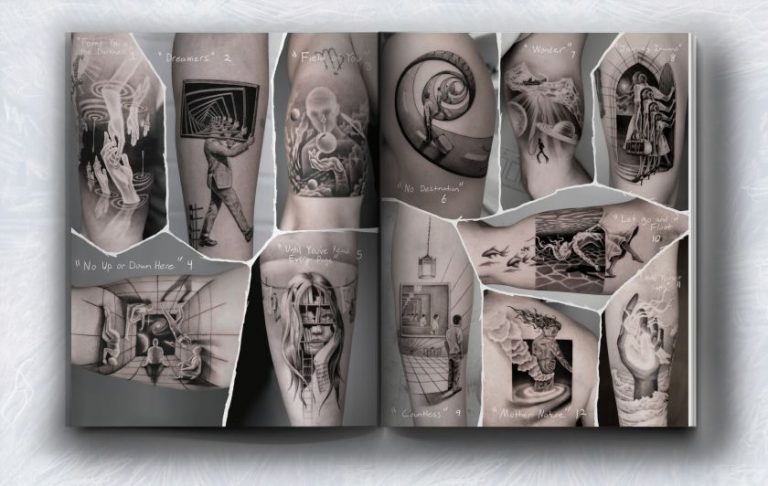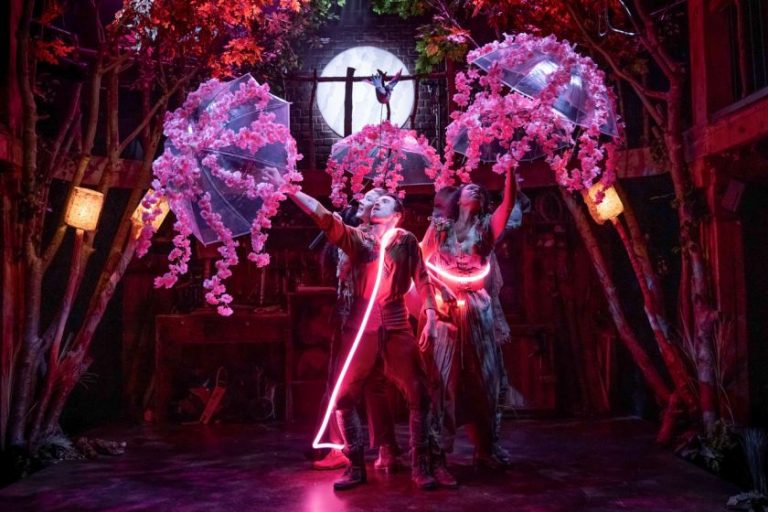Magazine-turned-podcast-turned-design studio MOUTHWASH is celebrating five years this year, so we caught up with the founders to see how it’s gone so far and what they have in the pipeline for the next five.
The four partners of MOUTHWASH Studio in Los Angeles always knew they would do something significant in the creative industry. What they didn’t expect was that it would come so soon in their careers.
Young millennials Alex Tan, Mackenzie Tan, Abraham Campillo, and Ben Mingo are already celebrating the fifth anniversary of their studio, which has just opened its first office space in LA’s Chinatown. With a team of 18, MOUTHWASH has people based all over the world, from New York and Texas to London and Sao Paulo.
What started as a community idea, inspired by Instagram, organically turned into a value-driven business. It began back in 2012 when Instagram had a pretty small community of artists and designers contributing to the platform that Alex Tan remembers a circle of people called ‘suggested users’, who all started to find each other through the network.
MOUTHWASH Holiday Party
From magazine to studio
Despite being spread out across the US and never having met, the soon-to-be business partners became friends through this medium. In 2016, Tan and Campillo both landed in LA with a desire to create a community that didn’t live exclusively online, resulting in a creative print magazine called MOUTHWASH. The name was chosen to communicate how the platform would be a breath of fresh air—something completely different from what people had seen before.
Of course, producing a magazine is no easy feat, and it will cost money. Ultimately, it has to be something that people want to spend their money on, so building awareness is crucial. To help with this, Tan and Camillo developed a podcast to help gain traction and followers and boost the magazine’s success.
“Every time we posted a podcast, we’d come up with some new and unique way to visually promote it through graphic and motion design,” says Tan.
All of their efforts were not in vain. The first issue of the magazine sold out, with 600 people attending the launch party in Chicago. Camillo admits, “I’d been to Chicago once in my life. I barely knew anyone there and was like, ‘What is going on?’.
“That’s when we thought ‘Oh wow, there might be something here’.”
The big break
By the time they’d finished producing the second magazine and podcast series, they started connecting with people inquiring about identity work, website design and photography. “It got to the point where we were working at different agencies and then working on MOUTHWASH at weekends,” says Tan, but one big client changed everything.
This career-defining project allowed Tan and Camillo to quit their jobs and give their full attention to the project, although it was still a risk, and they were very early in their careers.
According to Camillo, the magazine and podcast gave them a taste of working together as a group. “We were doing a lot of passion projects, like Waka Waka furniture, so there was a bit of momentum and an appetite to work together more.”
He adds, “MOUTHWASH, at its core, is us working together across different disciplines, and Alex, Mackenzie, Ben, and I complement each other well.”
Holistic or nothing
With the rise of Squarespace and templated websites, MOUTHWASH saw a huge gap in the market for custom website design. Equally, the founder noticed a need for more pragmatic production as social media became more popular.
“I think those two things made a space for a young studio like ours,” says Camillo.
A non-negotiable for all of their projects—even early on—was that they would only work holistically. Camillo explains that they’re “quite diligent” in this approach because they truly believe it makes the work better. “We left our jobs and took pay cuts for that belief,” he adds.
MOUTHWASH defines this holistic approach by always starting with strategy—not just “design this thing and make it pretty,” which means everything is a case study. The team generally doesn’t develop sites that they don’t design and only works with clients who value them as consultants.
Tan says, “The key difference in how we think about the work is that we try not to think about ourselves as a service; we are a product that people pay for, and I think that perspective makes us really unique.
“We don’t just do what people say because they’re paying us money.”
One of the first big projects that MOUTHWASH worked on was Air Company, where they carried out the rebranding, website, development, and campaigns. “It was a true example of what the process should be like going forward,” says Camillo, adding, “It came at a really good time and allowed us to do some of the larger scale work we’re doing now.”
Like the studio, the client was also in a phase of growth, which fostered a good relationship from the start. They were moving from selling sustainable vodka to sustainable aviation fuel, which is quite the pivot.
For Tan, the best and most notable projects are those where the studio works on every aspect of the brand. He says, “Designing a website and then volunteering to re-photograph everything is a really good example of how we showed that every part is as important as the other part.
“It’s not an egotistical thing, but how can you tell a cohesive story when the point of view is being spread across different studios and agencies? It’s like a different author writing each chapter of a book.”
Embracing challenges
“Working on a project where there isn’t much of a reference point is the most exciting but also the hardest,” says Camillo. For Air Company, MOUTHWASH had to render products and create a campaign when the product didn’t even exist.
Similarly, the studio had never worked with a client like fashion house Thom Browne before, and they were subjected to extra pressure and time constraints due to New York Fashion Week. “The challenging thing was the speed at which we had to work,” Camillo says, explaining how they had three or four photoshoots with famous people, which had to be sent out to GQ and other magazines the next morning.
However, he says that “these experiences yield the most self-fulfilling results.”
From Tan’s point of view, the challenges are more about managing your culture and retaining your values and vision. He says, “I think as you get bigger, quality is always a hard thing to maintain.
“We got here by having a vision, working on every single project, and doing every single pitch, but as you grow, you can’t do that. You have to learn to trust people on your team to do those things and expect them to care as much as you would.”
Tan also notes that running a business means “dealing with people’s lives and managing emotions”, which is a huge challenge they didn’t see coming. “It’s much more than creative work, but that’s the job,” he adds.
Company Culture
From the beginning, the MOUTHWASH Studio partners spent a lot of time on culture, culminating in a culture manual that everyone in the team can access. “We’re not scared to say ‘this is how we operate and do things’,” says Tan.
It is clear that the partners are all very much involved in the work and that the whole team only works on things they enjoy working on.
Camillo says, “I think that value is more important for us than money because the alternative is a short-term business mindset.
“At some agencies, information funnels down, and you’re very far from the source, but we’re ultra transparent so everyone can see every conversation and have a culture where the best idea can come from the youngest person.”
He adds that, while in previous jobs he sometimes felt like “a speck of dust” who barely came into contact with the senior team, at MOUTHWASH, every person has access to the partners.
Equally, the team had positive experiences they wanted to bring to their studio. MOUTHWASH used to be a fully remote team and only recently moved into their new studio space, so Slack is a place where people are encouraged to have healthy debates and speak their minds.
“In our Monday morning meetings, we start the call with Snaps – which I learnt from a previous agency – where you give a shout-out to someone in the team,” says Tan. “Little things like that really create positivity and encouragement.”
MOUTHWASH even has multiple celebrations every year, giving the team opportunities to learn new things, and flying colleagues in from all over the world. “We also give the most extra gifts both to clients and the team,” says Camillo.
A home away from home
MOUTHWASH’s brand new office space in LA, where three of the four partners are based, truly reflects its culture and values as a business and also nods to its community origins.
“It felt like we were building a house and having everything that mattered to us. It’s like a living room – it’s very warm and only uses lamps,” says Camillo.
Designed by Aunt Studio (founded by Noam Saragosti and Juhee Park), the MW.S office serves as an incubator for cross-collaboration between the industries, people, and communities that have impacted the team’s professional journey in the five years since its founding.
The space is hugely inspired by a cabinet of curiosities, specifically what the team’s LA cabinet of curiosities would look like. It is also filled with artefacts, art pieces, and furniture designed and made by their friends, including art from Jon Zabawa, a phone booth and platform by Waka Waka, and a Christina Moreno side table and coffee table.
“These are all people with whom we are genuinely best friends, and they show up for us all the time,” says Camillo.
Tan describes it as “a true modern representation of everything [they’ve] built”.
Turning his thinking to the future, Camillo says, “We don’t just want to be known as a website studio, or a branding studio, or a photo studio—we always wanted to challenge the mediums that we work in, and our space reflects that.”
One of his personal goals is to start a New York office, as they already have many team members and clients there. He also wants to dive into more projects in the spatial world, building on MOUTHWASH’s work with Thom Browne.
Tan adds: “I’m looking forward to working with more clients who trust our process and what we’re doing even if we’re not the obvious choice for them.”

